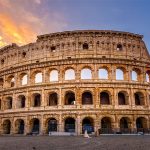Creating a comprehensive business plan is essential for launching and sustaining a successful travel agency. A well-crafted business plan serves as a roadmap, guiding the agency through strategic decisions, operational considerations, and growth opportunities. Below, we illuminate the critical components that form the foundation of a successful travel agency business plan.
1. Executive Summary
The executive summary provides an overview of the travel agency’s mission, vision, and core objectives. It encapsulates the essence of the business plan, outlining the agency’s unique value proposition, target market, competitive landscape, and financial projections. This section serves as a concise introduction, setting the stage for the detailed components that follow.
2. Market Analysis and Competitive Landscape
Conducting a thorough market analysis is imperative for understanding the dynamics of the travel industry and identifying opportunities for growth. This segment of the business plan delves into the target market’s demographics, preferences, and purchasing behavior. Additionally, a comprehensive assessment of the competitive landscape, including rival travel agencies and online travel platforms, provides critical insights for positioning the agency within the market.
3. Business Model and Services Offered
Defining the business model and delineating the range of services offered is a fundamental component of the business plan. This section outlines the agency’s specialization (e.g., leisure travel, corporate travel, luxury experiences) and details the suite of services provided, such as itinerary planning, accommodation bookings, transportation arrangements, and travel insurance offerings.
4. Marketing and Sales Strategy
A robust marketing and sales strategy is essential for attracting and retaining clients. This segment of the business plan outlines the agency’s approach to branding, advertising, and customer acquisition. It encompasses digital marketing initiatives, partnerships with travel suppliers, and strategies for cultivating a loyal and repeat customer base.
5. Operational Plan and Organizational Structure
The operational plan focuses on the internal workings of the travel agency, encompassing staffing requirements, technology infrastructure, and operational processes. Additionally, defining the organizational structure, roles, and responsibilities of key team members is crucial for establishing clear lines of communication and accountability.
6. Financial Projections and Resource Allocation
The financial projections section outlines the anticipated revenue streams, cost structure, and profit margins. It also includes a detailed financial plan, encompassing startup costs, ongoing operational expenses, and revenue forecasts for the first few years of operation. Furthermore, discussing the allocation of resources, such as investment in technology, marketing expenditures, and contingency funds, is critical to sustaining financial health.
7. Risk Management and Contingency Planning
Assessing potential risks and crafting contingency plans is essential for mitigating challenges and uncertainties that may impact the travel agency’s operations. Identifying potential risks, such as geopolitical events, economic downturns, or disruptions in travel infrastructure, and formulating proactive measures to manage these risks demonstrates foresight and preparedness.
A successful travel agency business plan integrates these key components, providing a comprehensive and strategic framework for steering the agency toward sustainable growth and success in the dynamic landscape of the travel industry. By meticulously addressing each facet, travel agencies can fortify their foundations and carve a path toward long-term prosperity and innovation.








